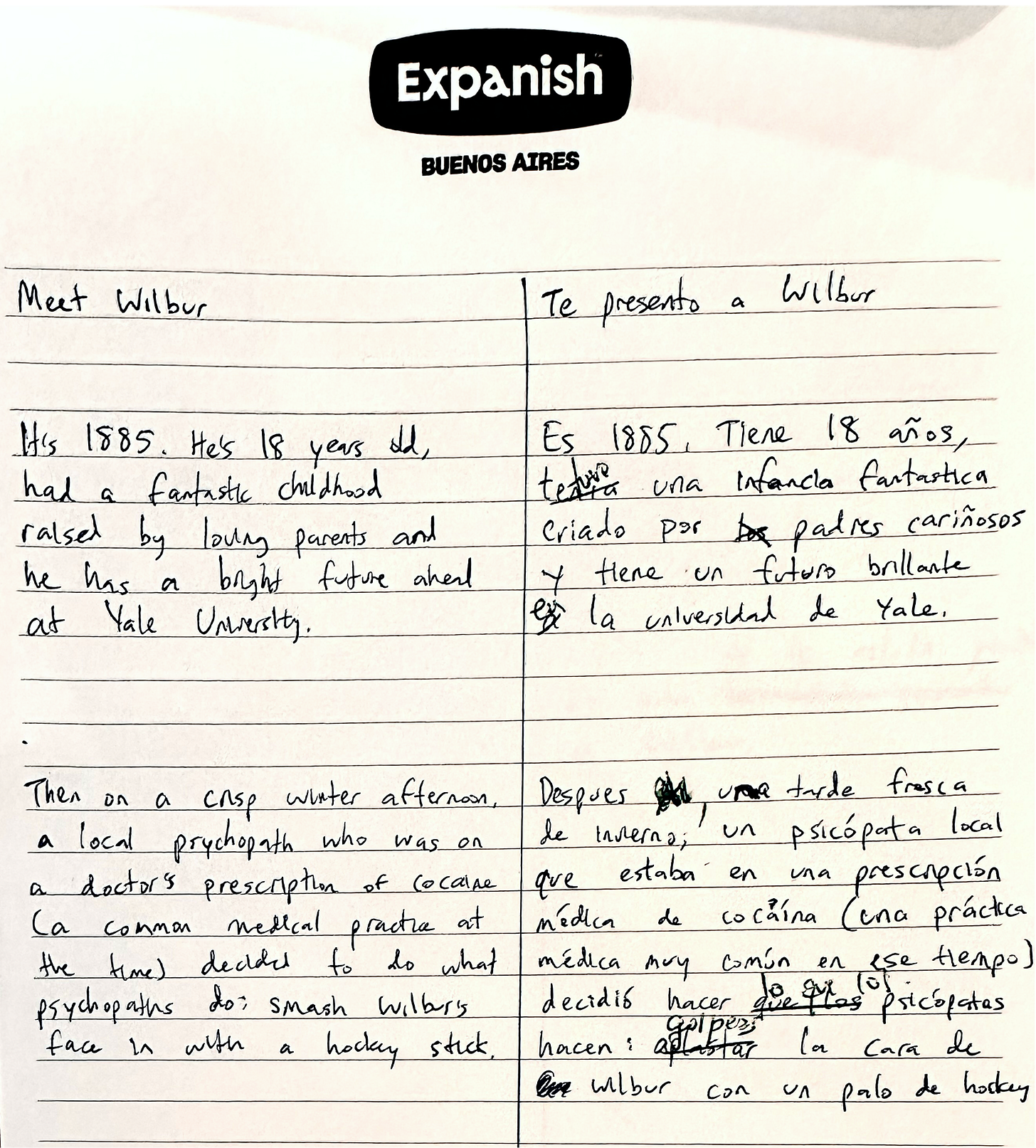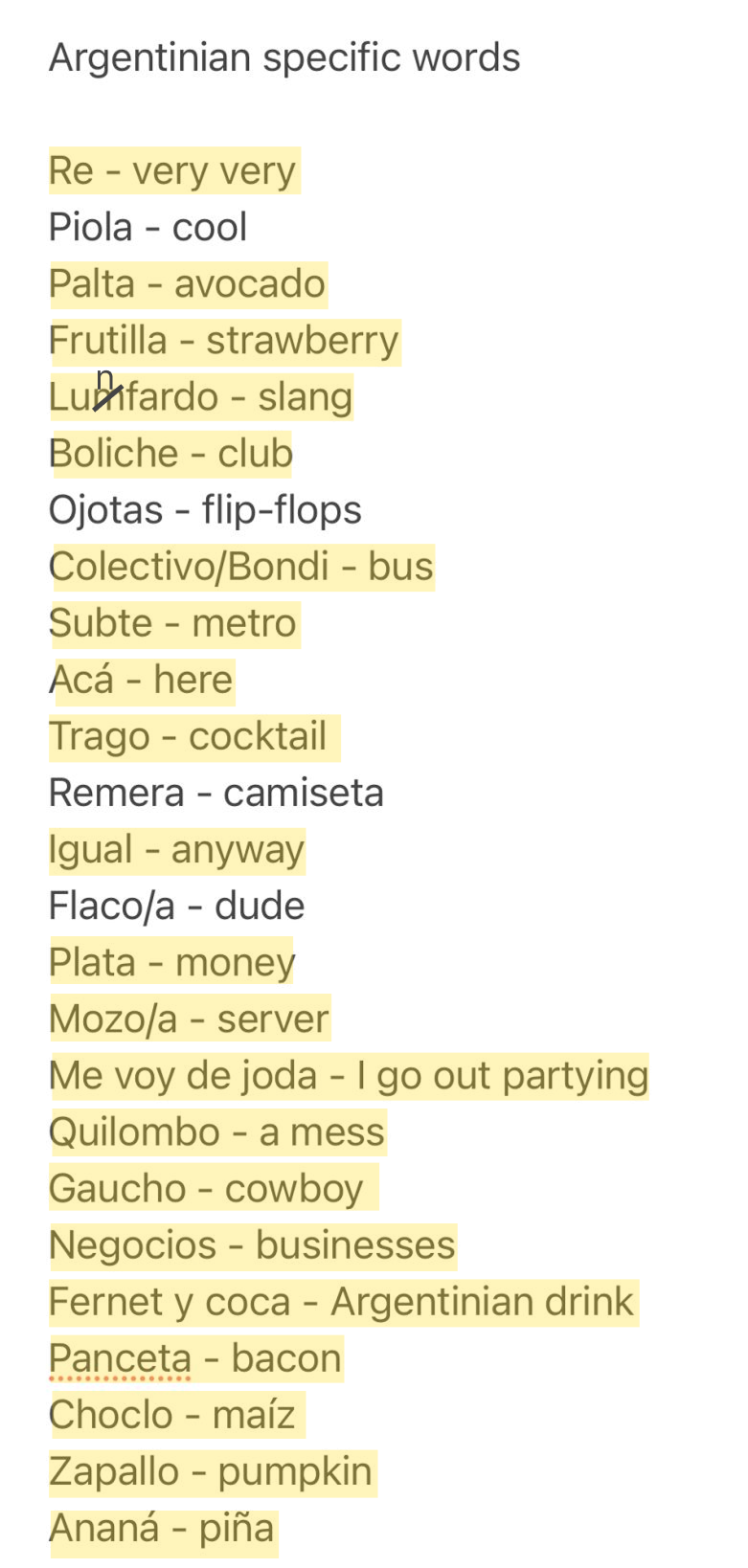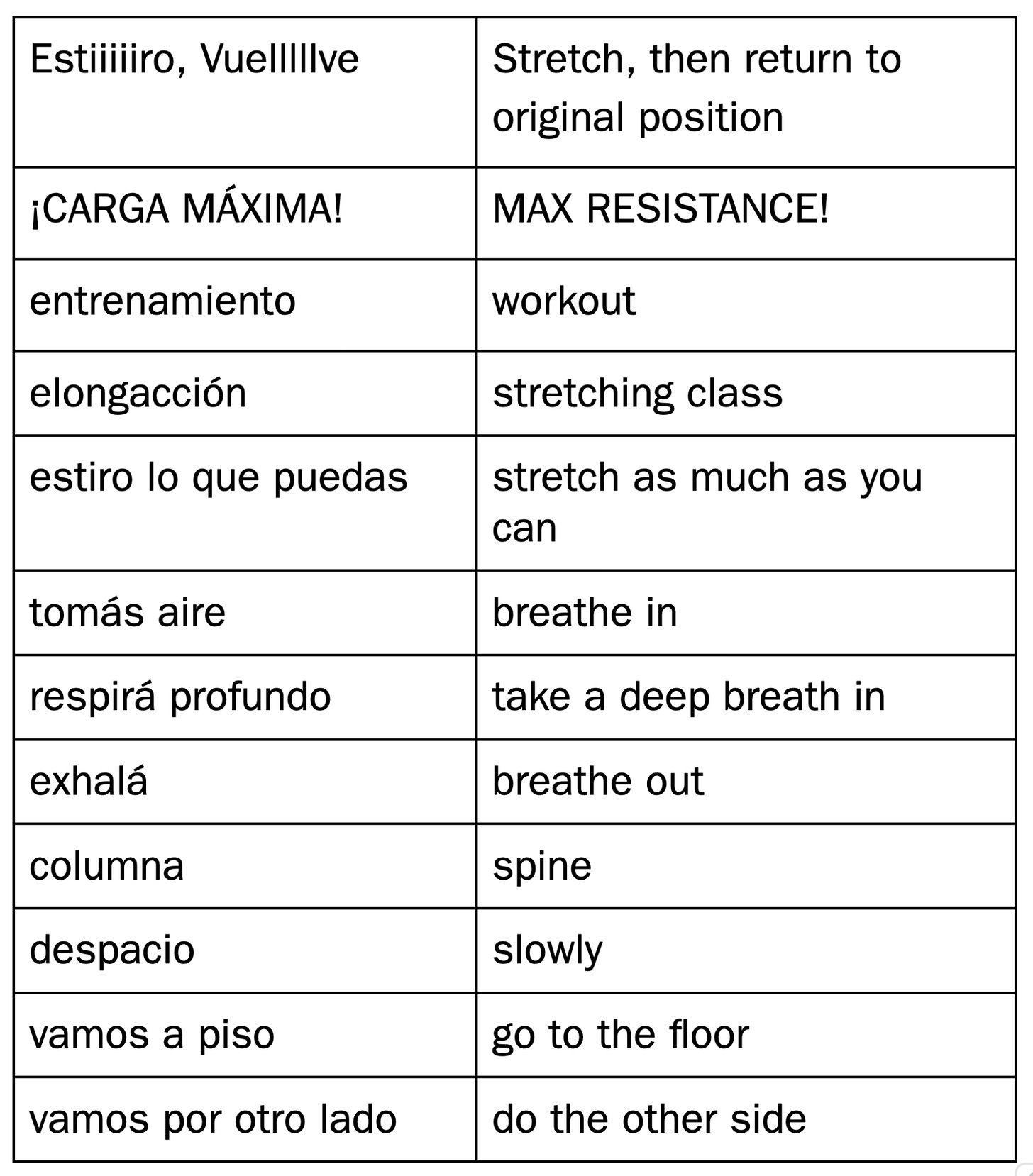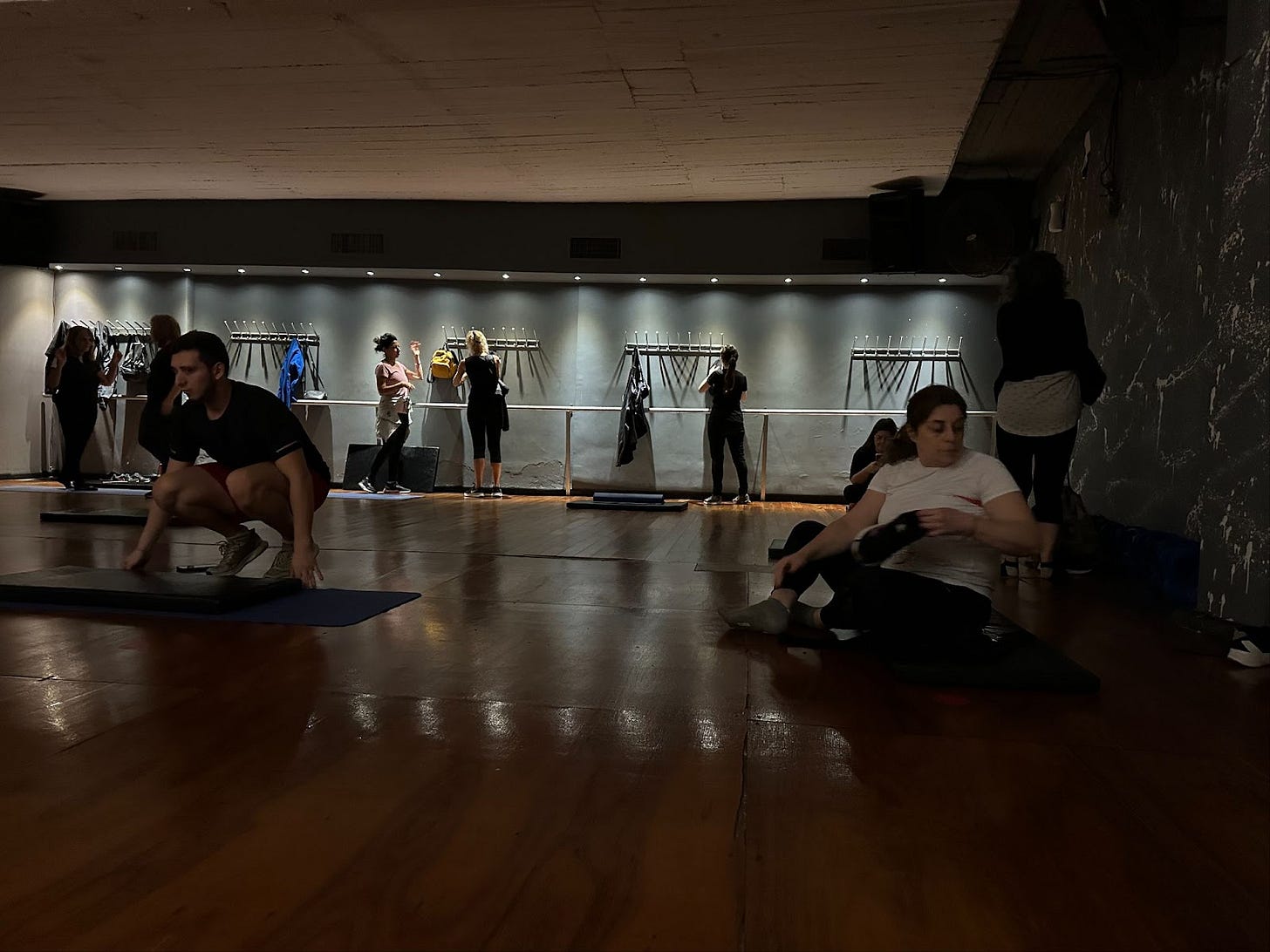1. Group Class Expanish is the best Spanish school in Buenos Aires, but it faces challenges: - You must attend. - Your schedule is designed for you. - Be quiet, sit still and listen to what the superiority figure has to say. - Ignore your curiosity, you must follow what’s on the curriculum. These are the implicit assumptions found in most schools, and Expanish is no different. School a big investment (4h a day; some do 6h or 8h), and not cheap. But learning Spanish is essential to my vision of living in Buenos Aires over the next 15 years, and fluency in 4 languages (Spanish, English, Japanese, and Chinese). After 6 weeks, I've advanced from an A1 to a mid-B1 level.
School sucks. Most of the time you’re sitting in a chair, bored, doing nothing, listening to the teacher drone on and on, doing "fake" exercises with your classmates, where you take turns reading the textbook to each other. The self-control required to sit still for 3.5 hours is energy-dissipating. While I fought inertia every step of the way, I made attempts to make things more fun. Like performing ballet in front of my class; teaching turnout and the five positions. Volunteering 'Defenestrar' when our teacher asked for -AR verbs, that led to a discourse on throwing people out windows. Packing a bag of dried yerba mate leaves and a 34oz metal Thermos for a classmate to try. Yet Expanish is still the best language-learning method I know of to date. Less effective methods include: high school / uni Spanish courses, watching random videos on "How to Learn Spanish" or god forbid, Duolingo... Duolingo: Sign up here for dopamine hits, an illusion of progress, and an agreement to being guilt-tripped into logging on everyday. App doesn't work. True gems arise from rapid experimentation, deep reflection, real conversations, and any situation where stakes are involved.
2. Profile your classmates I initially started keeping notes as a means to remember names; but since I've found it valuable to add a few more details. Amiel: 30s, France, B2B AI-consulting startup Clara: 20s, UK, 6mo BsAs btwn undergrad & law firm Dev: 20s, Scotland, IG Influencer in Personal Finance Eric: 20s, Washington DC, left Consulting job George: 80s, Florida, retired lawyer for seafood restaurants Jannik: 20s, Cologne, studies Media & Marketing Mgmt Lili: Brasil, 15yrs at public bank Maria: 30s, Brasil, Pilot of commercial aircraft Sara: 20s, Wisconsin, ski instructor, homestay w/ Argentine theater actress As you can see, Expanish attracts interesting people, hence why I like it.
3. Play matchmaker
Your friend asks you to find them a date. Do you accept a little side quest?
Every Monday, I scout the new batch of students for a potential match. Unfortunately, my friend has strict criteria, so I haven't found a suitable suitor yet...4. Gift a classmate One of my classmates would talk about protein powder during our breaks. Therefore I knew she was health-conscious. On the following day, I bought her an açaí cup. This elicited feelings of reciprocity, and after declining several of her attempts to return the favor — she bought pastries for the whole class (an extremely generous gesture). It also led to us dancing tango together at the La Viruta Tango Club.



5. Discover a new genre of music
Mariana, my A1 Spanish teacher, told us of La Viruta. She goes there every Friday to dance tango. Thanks to her, we found out about the live music night where Otro Aires was playing.
Otros Aires plays techno-tango. It's a genre of music that was invented in Buenos Aires in the early 2000s. So a baby when it comes to the history of music. It's a fusion of traditional tango with modern techno.
Techno-tango playlists are hard to find on Spotify — because only a select number of groups plays it. I feel like I'm witnessing the birth of a new genre of music in real-time. How cool is that? 6. Download a whole playlist
Carlos, my B1 Spanish teacher, studied the history of Argentine music and dance for 34 years. He writes and teaches on his blog Melografias. I asked him for music recommendations and he sent me a 608 song playlist.
While packing my bags to leave Argentina, I listened to the first 11 songs. They were great.7. Private Class Did you know Argentina has 19 holidays per year while the USA only has 11? This is because the government has the ability to add extra holidays per year (and they do). They call these "Tourism Bridge Holidays". So if a holiday lands on a Thursday, the government decides to cancel Friday too. In 2025, there are three of these: on May 2, August 15, and November 21. During my time in Buenos Aires, there was a period in April where literally every week there was a freaking holiday! And my school was weird in that they didn't offer a full discount. So during one of these holiday weeks I opted for private classes instead. Here is my review: Private lessons are 5x faster (at advancing Spanish level) but 5x more expensive per hourly basis (per my calculation). You miss the group dynamics, which, depending on your objectives and style, may be a hinderance. The pros are tailored attention and the ability to ask one person anything.
8. Solicit a field recording
Ask your private teacher to speak for 30 seconds about the city. Listen to the audio clip on repeat and reproduce the sounds. The more you listen, the more you can hear. Sounds, which have been previously invisible, start revealing themselves to you. 9. LATAM Keyboard
To type Spanish, you need to know how to type á, é, í, ó, ú, ñ, ¿, and ¡. On a phone, a bilingual keyboard enables Spanish autocorrections, which relieves you of typing accents altogether. On a computer, set up a LATAM keyboard. It gives you a designated accent key for typing accentèd letters; however, it scrambles some of the punctuation marks. Unfortunately, this adjustment can be painful and entails learning how to touch-type.10. Text in Spanish
Many peoples' beef with language classes is that they are too formal. You should know how normal people communicate. Best way to start is by texting friends (who know you're learning Spanish), and work your way toward acquaintances and professional contacts.
If you're feeling adventurous, try one of these acronyms:11. Send a voice note
Latin America relies on audio notes more than any other region. Go on the bus or metro and you’ll see people lift their phones and speak into them. Even messages as short as 1-2 words— where a text is faster— people prefer audio notes.
This might feel alien to you, as it did for me. Best way to overcome performance anxiety is to internalize that it's fine to mess up. You can stumble and falter, because chances are recipients will playback your message at 1.5x or 2x speed.12. Email
The holy grail. It feels liberating to receive an email and instantly convey a concept directly from your head into Spanish — without first going through native language conversion.
It reminds you of what the work is for. These little or large moments of unobstructed self-expression.13. Translate a story The process is slow, but it forces you to sit with the fine details of the language. What is the gender of médica? Is there an accent on que or como? I chose Wilbur Wright's origin story. He flapped his hands like a seagull to learn the motion of the birds’ wings — to invent airplanes. I used Google Translate for the initial translation, and then my teacher for corrections.
14. Go beyond Tourist SpanishTourist Spanish is simple words: hola, gracias, adiós. But native speakers rarely just say simple words. They will sprinkle in a few extra words before and after: a question, follow-up, nuanced feeling, redundant words that serve as conversational butter. A single "Gracias" may be awkward. It's short, abrupt, and leaves a lot of silence afterward. To elevate your Spanish game, add a few speech ornaments, like you would in native spanish.
15. Learn a new phrase "When I exit an Uber, what can I say besides ‘gracias’?" "Buen trabajo," my friend replied. Buen trabajo literally translates to "good job", but according to my friend, its meaning in Spanish is similar to: have a good rest of the day at work It does not mean: [you did] a good job nor [being an Uber driver] is a good job At first, I was skeptical because in English, it'd be a bit weird to tell your Uber driver "good job". Like who gave you the authority? "Good job" is something a teacher would say to a student or a coach would say to a player. But it seems to work well. When I use it, I get a reasonable reaction from drivers. They take it as a compliment but in an overly-reactive way. In general, I've found it useful to pay attention to the effects of words rather than its syntax. For example, "la cuenta, por favor" gets the waiter to bring you the bill, every time. The more you use a phrase, the more times you get the intended response, then the more confident you can be sure that it works.
16. Verify slang
Slang is often contextual and evolving. It may not used by the whole population. But you need know it for fluency.
The highlighted words are the ones I've heard and verified during my time in Argentina.17. Learn a Hand Gesture
Every culture has its own gestures. Colombians kiss to one side to indicate direction. Mexicans like to wiggle their index finger up and down to say 'yes'. Argentines love the Italian pinch 🤌 for expressing annoyance or emphasis.18. Do a deep dive on Spanish pronunciation
Pronunciation is the least-emphasized skill out of the big four (listening, speaking, reading, writing) in modern schools.
Vowel sounds (a, e, i, o, u) are the 80/20 of Spanish pronunciation. Get these right for the biggest impact per time spent.
Then if you want to learn more, go with the Spanish b, d, ñ, and single r sound.
The double r — aka the rolled r — aka the most distinctive Spanish sound — is actually the least important of the Spanish sounds. From what I've heard, you can get away for a long time with not knowing how to roll your r's.19. Take a friend out to lunch
If they're a foreigner (also learning Spanish), make a rule: first 15 minutes you can only converse in Spanish, then converse in English. Since we all have our habitual ways of introducing ourselves, breaking out of that via a new language will inevitably result in interestingness.
If they're a native, then you can switch between English and Spanish as you please.20. Join a conversation group Personally, I hate Mundo Lingo but I know many people who love it. There's also an expat group that meets Tuesday (you can find it on Facebook or forums). Or if you're lucky you can join a local conversation group. If all else fails, you can start your own.
21. Crossfit
Join a gym. Each day, my gym posts a Crossfit routine, called Workout of the Day, on the whiteboard. If there is an exercise I don’t know, I get a staff member to demonstrate it or look it up online. It's a good way to build specific vocab while getting fit!
Not all gyms have Crossfit, but many have a whiteboard with a list of exercises. You can also get a staff member to write you up a workout if you just asked.
22. Spinning
Nobody seemed fazed when our spinning sergeant showed up 15 minutes late. The boludo took his sweet ass time to give everyone in the room (~20 of us) a fat kiss on the cheek. Except me, I shook his hand. 😎23. Yoga Your trainers’ voices during elongacción are more audible than during high-tempo entrenamientos. You have luxury of time to dwell on Estiiiiiro, Vuelllllve versus huffing and puffing on ¡CARGA MÁXIMA!
24. Go to the cinema
Argentine films aren’t as illustrious as H/B/Nollywood, Brazilian, or even Mexican cinema — but there are a few noteworthy ones.
Start here for a list of recommendations by local Argentines.🇦🇷 La historia oficial | 🇺🇸 The Official StoryAn upper-middle-class couple lives in Buenos Aires with an illegally-adopted child. They discover the child is a victim of desaparecida. desaparecida = a series of forced disappearances by the military dictatorship from 1976—83.(haven’t seen)🇦🇷El Eternauta| 🇺🇸The EternautPost-apocalyptic sci-fi series about aliens and poisonous snow. Starring Ricardo Darín, the most recognizable actor in Argentina.Based on a super highly-successful Argentine comic; second only in impact/popularity to Mafalda.(watched 2eps then quit, 2 spooky 4 me, it made me afraid to go outside)
🇦🇷Inseparables| 🇫🇷IntouchablesAn Argentine re-make of the French comedy Intouchables. Trailer(haven’t seen)🇦🇷La sociedad de la nieve| 🇺🇸The Society of the SnowTrue story of a Uruguayan rugby team after Air Force Flight 571 crashed in the Andes Mountains from Argentina en route to Chile in 1972. The survivors would go on to become businessmen, politicians, and writers.(first 20 minutes was awesome; plane crash scene was well-shot, sick and gruesome; got the gist after that; completed by skimming the plot on Wikipedia)
🇦🇷Esperando la carroza| 🇺🇸Waiting for the HearseComedy. Made in 1985. Mama Cora's four children argue over who should be forced to care for her in her old age.(haven’t seen)🇦🇷NadaRobert de Niro explains the difference between boludo (= a person with big balls) and pelotudo (= a person with big and heavy balls).(haven't seen, but I really want to see it!)
🇦🇷Relatos Salvajes| 🇺🇸Wild Tales| 🇫🇷Les Nouveaux SauvagesSix relatos (short tales), each one a pantomime of crime, crudity and an unapologetic dislike of humankind.

25. Watch Pasternak from Relatos Salvajes Superb dialogue. I recommend getting the plot gist first before diving into the lines. See English/Spanish script. 7m 37s
26. Watch Hasta que la muerte nos separe from Relatos Salvajes
hasta que la muerte nos separe = until death do us part
This one plays on the stereotype that Argentine relationships are volatile, jealous, explosive, sexy and dramatic.
29m 2s27. Maneras de Enamorarse. You love Relatos Salvajes so much that you go to a bookstore and ask the clerk: are there any books similar to Relatos Salvajes? The clerk presents you with five lengthy recommendations. You pick the one with the most interesting title, called '27 Maneras de Enamorarse', go home, and flip through the book until you find a 1-page short story. You attempt to read it but it's too far above your Spanish level because of the subjunctive tense so you throw the whole thing into Google Translate only to realize you totally misinterpreted the plot. The real meaning is so dark, perverse, and f***ed up that it shakes you to your core. You are so disturbed you never pick up the book again.
























…love the movies recs…watching a dub of dante’s peak in Cancun is one of my great spanish language memories…
I really enjoyed this, Leo! Some great tips in here. I'm also trying to learn Spanish!